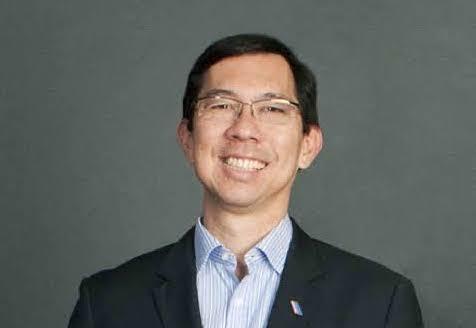BPI seeks ‘conditional’ RRR cut for lower interbank transfer fees

Bank of the Philippine Islands (BPI) President and Chief Executive Officer Jose Teodoro “TG” Limcaoco is calling for the conditional reduction of the reserve requirement ratio (RRR) of big banks for them to cut down interbank transfer fees, but the Bangko Sentral ng Pilipinas (BSP) governor said he preferred a uniform adjustment.
According to Limcaoco, big banks can cut down interbank transfer fees to zero should the BSP give a conditional reserve requirement cut, as lenders would be able to utilize such reserves that are mandated to be parked with the central bank without any interest earned.
“I’m telling, I’m encouraging, cut reserve requirements but make it conditional. Make it conditional and I guarantee you, everyone will follow because the cut in reserve requirement is so powerful. You can lend the money out. Today it earns zero,” he said in a recent interview in Makati City.
“I told him you cut reserve requirement by two (percentage points), I’m zero (interbank transfer fees) right away. That’s my promise to him,” he added.
Presently, the RRR of universal and commercial banks and non-bank institutions with quasi-banking functions is 9.5%. The RRR of digital banks is at 6.0%; and for thrift, rural, and cooperative banks at 1.0%.
The reserve requirement is the amount of cash a bank must hold in its reserves against deposits made by customers in the Philippines and applied to deposit and deposit substitute liabilities.
Limcaoco said that should the BSP give out the conditional RRR reduction to banks that will cut their interbank transfer fees, these banks would have more money to lend to the consumer.
“The same way the central bank incents the thrift banks to lend to the lower segments by giving them a lower reserve requirement, why can’t you incent any bank that does free transfers by cutting reserve requirement?” he said.
“Then let banks decide. Then it goes to free and all you’re really doing, right, is you’re moving the cost away from the consumer to whoever pays for the lower reserves,” he added.
Limcaoco said BPI conducted a study on the costs that come with interbank transfers and found that it pays P3 to MasterCard for InstaPay fees, P1 to send the one-time password (OTP) to customers, and P22 expenses which covers cybersecurity and call centers.
“They keep saying P3, but you’re charging P25. I said, 'Well, because it’s not only P3. We need cybersecurity, we need call centers to answer all the questions.' We actually did a costing. Our cost for every transfer is about P22. BDO (Unibank Inc.) did the same study, they came up with the same number,” he added.
For his part, BSP governor Eli Remolona Jr. said that while the reduction of the RRR was not discussed in the Monetary Board meeting Thursday, it was only a question of timing as he said he would prefer that adjustments would be uniform.
“We haven’t discussed it in the Monetary Board, but I will raise it in one of the next few meetings. I think we should reduce RR quite substantially. Right now I think it’s at a ridiculous level but we haven’t made any decision when to do it. We will do it but we don’t know when,” he said last Thursday.
“I would prefer that the reserve requirement not be used for the purpose (incentives for lower interbank transfer fees). We have other tools for that. I think the reserve requirement should be the same for the deposit and deposit-like liabilities. I would prefer uniform across the different liabilities,” he added.
BPI’s Limcaoco said, however, that an across-the-board RRR cut would not provide an incentive for banks to cut down the interbank transfer fees.
“I have to differentiate. If you’re going to say everybody gets it, why will I cut? Why will I bring my fee to zero? Pero (but) if it’s only those who are zero, I’m there and I guarantee you, Nestor’s there also, Fabian’s there also,” he said.
He was referring to BDO Unibank Inc. president and chief executive officer Nestor Tan, and Metropolitan Bank & Trust Company (Metrobank) president Fabian Dee.
Former BSP Governor Nestor Espenilla Jr., who passed away in February 2019, said in 2017 that he wanted to see the reserve requirement cut by half under his leadership. It was then set at 20%.
Current BSP governor Remolona’s predecessor Felipe Medalla had said the BSP could consider cutting the reserve requirement to enable banks to lower their transfer fees, as he said the fees being charged for small transactions would be “quite large” relative to the amount being sent. — DVM/KG, GMA Integrated News

Need a wellness break? Sign up for The Boost!
Stay up-to-date with the latest health and wellness reads.
Please enter a valid email address
Your email is safe with us






